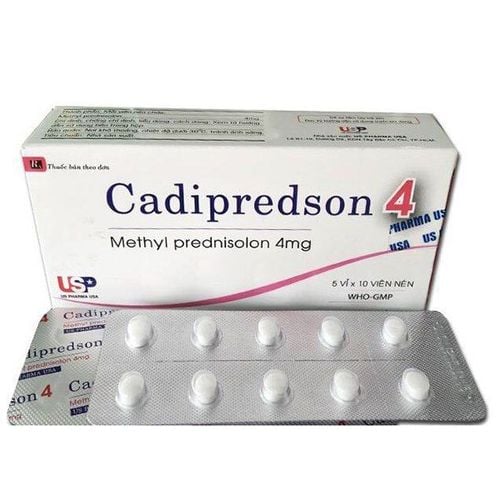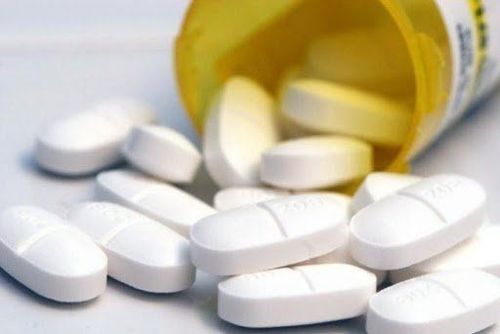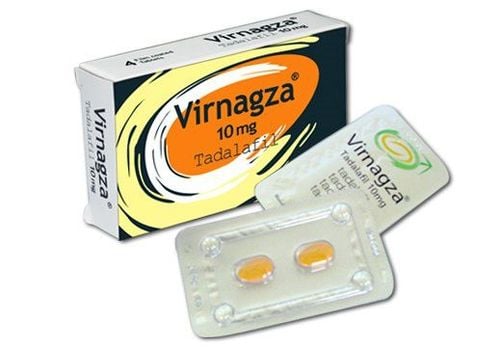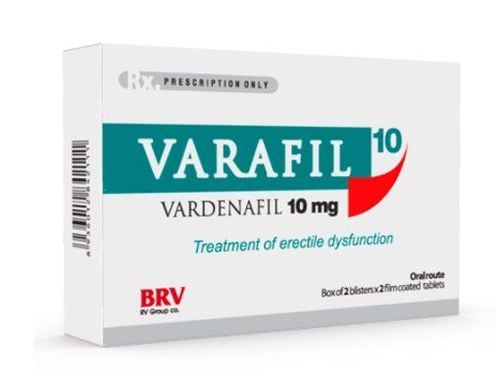This is an automatically translated article.
Lifanaf belongs to the group of hormonal drugs and hormones and is made in the form of chewable tablets. The main ingredient of Lifanaf is Sildenafil, which is indicated for use in the treatment of erectile dysfunction, and has the ability to aphrodisiac... However, during use, there may be unwanted side effects such as allergies, increased heart rate, dry mouth... Therefore, patients need to learn carefully about drug information Lifanaf before using.
1. Mechanism of action of the drug Lifanaf
An erection occurs when the penis is filled with blood and the blood vessels leading to the penis increase blood supply, and the blood vessels that carry blood out of the penis decrease blood flow. Under perfectly normal conditions, sexual arousal will form and release nitrogen oxides in the penis, thereby producing cGMP which is responsible for penile erection. The drug Lifanaf has the main ingredient is sildenafil, a selective inhibitor of the c.GMP-PDE5 ring. This compound prevents cGMP destruction and allows cGMP to persist and accumulate longer, causing blood stasis in the penis to be prolonged.2. Indications and contraindications to the use of Lifanaf
Lifanaf is indicated in the treatment of erectile dysfunction g - the inability to achieve or maintain an erection sufficient to satisfy sexual activity. However, Lifanaf is also contraindicated in some cases of hypersensitivity to the components of the drug, such as those with a history of coronary and cerebrovascular disease.
3. Dosage and how to use Lifanaf
Lifanaf is used at the usual recommended dose of 1 tablet / time / day corresponding to 50mg and is taken about 1 hour before sex. However, depending on the response of each patient, Lifanaf can be used at a dose of 25 to 100 mg / time / day.
People with mild to moderate renal impairment can use Lifanaf as usual. But for severe renal failure, the first dose is 25mg/time. Then depending on the response of the body can increase the dose from 50 to 100mg.
People with liver failure can reduce the dose of Lifanaf with an initial dose of 25mg and then depending on the effectiveness of the drug can increase the dose to 50 to 100mg.
Note: The recommended dose of Lifanaf is for reference only. Therefore, before using Lifanaf, patients need to follow the doctor's instructions.
4. Management of missed dose and overdose of Lifanaf
If you forget a dose of Lifanaf, use it as soon as you remember. However, if the interval between the missed dose of Lifanaf and the next dose is too close, skip the missed dose. Patients should not use a double dose of Lifanaf, because it can cause an overdose.
To overcome the situation of missing doses of Lifanaf, patients can set an alarm or ask their loved ones to remind them.
In case of accidentally using Hapacol drug in excess of the prescribed amount and some unwanted signs appear, immediate emergency medical attention is required.
5. Side effects when using Lifanaf
Lifanaf medicine can cause some unwanted side effects during treatment. However, with each case, Lifanaf side effects can occur in varying degrees from mild to severe.
Some common side effects caused by Lifanaf include: vomiting, dry mouth, decreased reflexes, increased tone, increased cough reflex, ... These side effects can occur at the beginning of treatment or after increasing the dose of Lifanaf. Usually, side effects from Lifanaf can be transient or subside over time.
However, in some cases Lifanaf can cause serious unwanted side effects with rare reactions. These reactions may appear after just a few minutes of using Lifanaf or longer within a few days. When serious side effects appear such as: increased heart rate, increased thirst, increased blood glucose, increased blood sodium, decreased glucose reflex, increased eye pressure ... the patient should stop using Lifanaf and go to the body. medical facility for immediate medical assistance.
Some notes during the use of Lifanaf:
For pregnant and lactating women, caution should be exercised when using Lifanaf. Patients should be advised to use Lifanaf from their doctor, and carefully analyze the benefits and risks before using the drug. Lifanaf may change how it works as well as increase its side effects. Therefore, in order to avoid Lifanaf drug interactions, patients should provide their doctor with a list of previously used drugs, including prescription and non-prescription drugs, herbs,... Using Lifanaf should be noted. when the manifestations of allergy to Lifanaf drug At the same time, the patient needs to notify the doctor so that he can promptly treat the side effects of the drug. Above is the important information about the drug Lifanaf, patients should carefully read the instructions for use and use according to the dose prescribed by the doctor to achieve the best effect.













